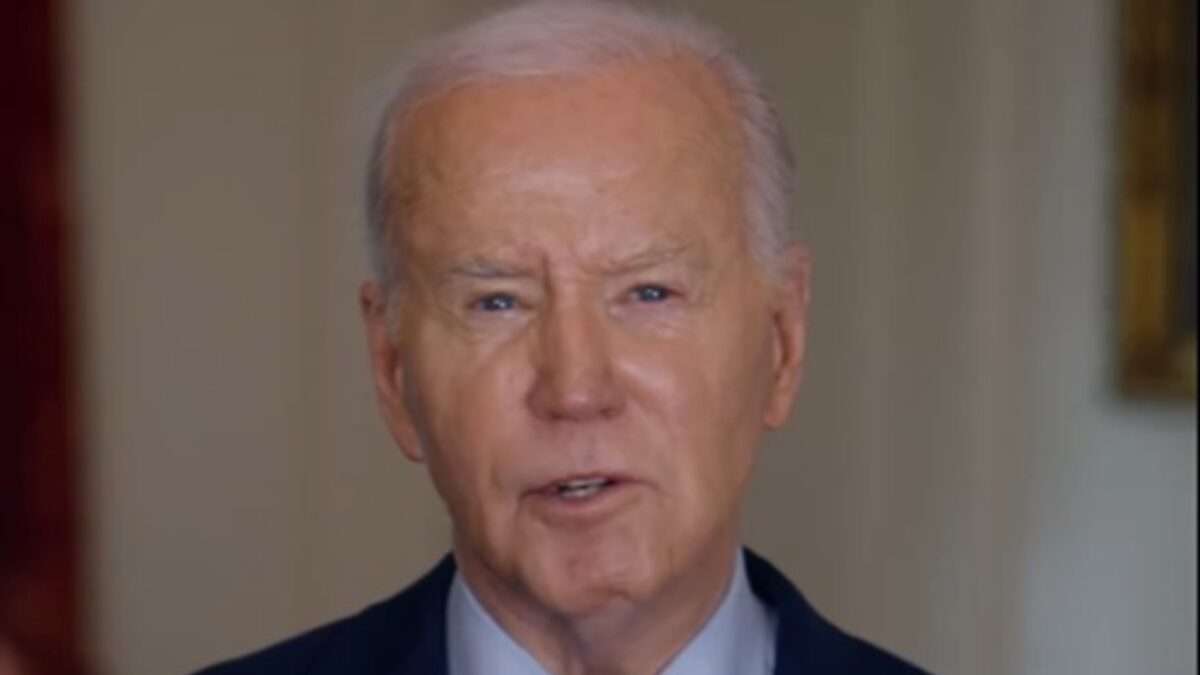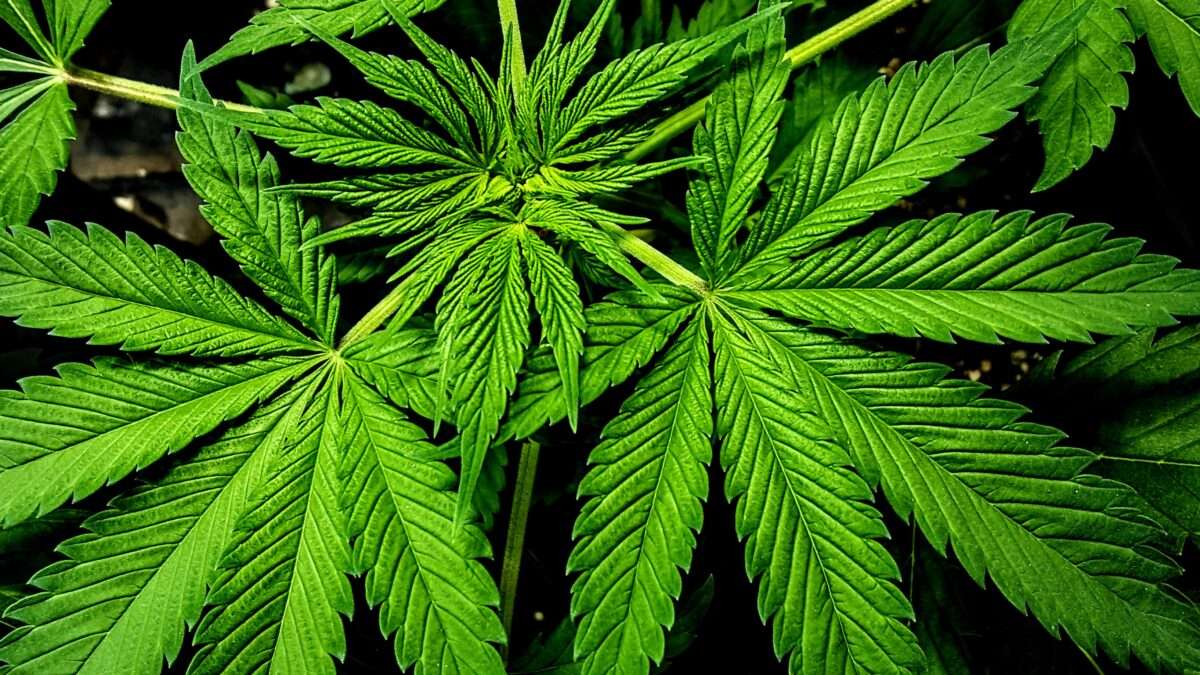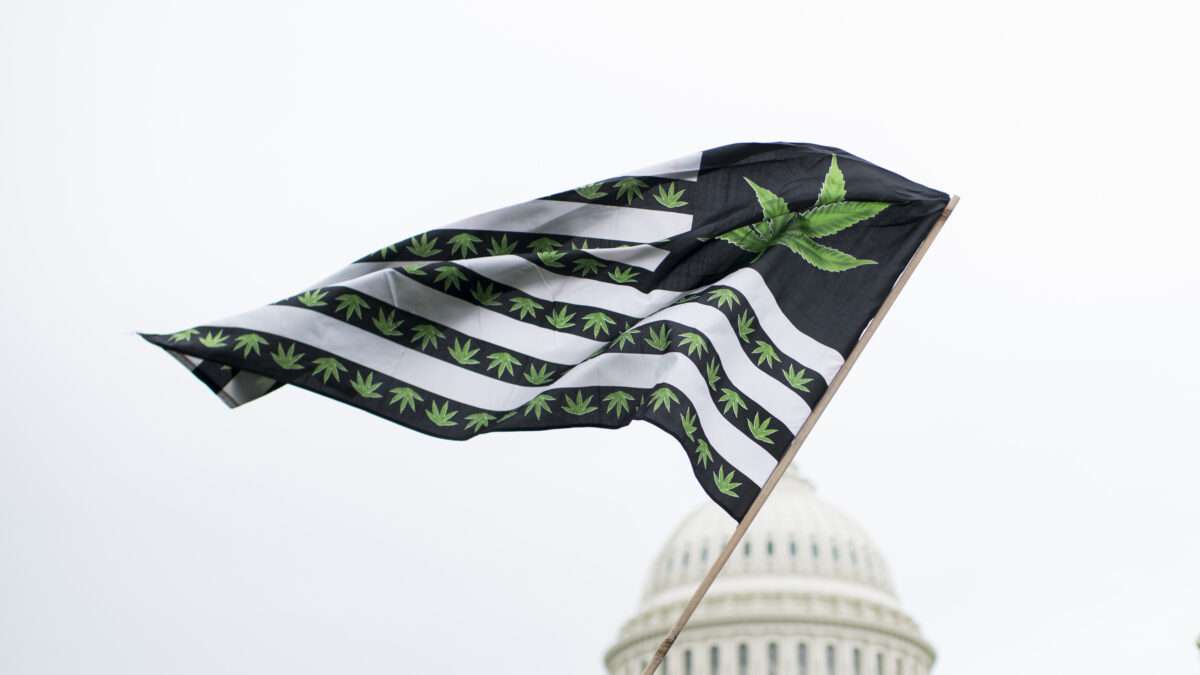Biden's Spin on Marijuana's Rescheduling Exaggerates Its Practical Impact

President Joe Biden describes the Drug Enforcement Administration's proposal to reclassify marijuana under federal law as "monumental." How so? "It's an important move toward reversing longstanding inequities," Biden claims in a video posted on Thursday. "Today's announcement builds on the work we've already done to pardon a record number of federal offenses for simple possession of marijuana, and it adds to the action we've taken to lift barriers to housing, employment, small business loans, and so much more for tens of thousands of Americans."
Even allowing for 60 days of public comment and review of a final rule by Congress and the Office of Management and Budget, marijuana's rescheduling could be finalized before the presidential election. And even if it does not take effect before then, Biden is hoping the move will help motivate younger voters whose turnout could be crucial to his re-election. But he also had better hope those voters are not paying much attention to the practical consequences of rescheduling marijuana, which are much more modest than his rhetoric implies.
"Look, folks," Biden says in the video, "no one should be in jail merely for using or possessing marijuana. Period. Far too many lives have been upended because of [our] failed approach to marijuana, and I'm committed to righting those wrongs." Yet rescheduling marijuana will not decriminalize marijuana use, even for medical purposes. It will not legalize state-licensed marijuana businesses or resolve the growing conflict between federal prohibition and state laws that authorize those businesses. It will not stop the war on weed or do much to ameliorate the injustice it inflicts.
In accordance with a recommendation that the Department of Health and Human Services (HHS) made last August, the DEA plans to move marijuana from Schedule I of the Controlled Substances Act, a list of completely prohibited drugs, to Schedule III, which includes prescription medications such as ketamine, Tylenol with codeine, and anabolic steroids. Schedule I supposedly is reserved for drugs with a high abuse potential and no accepted medical applications that cannot be used safely even under a doctor's supervision.
When Biden directed HHS to review marijuana's legal status in October 2022, he noted that "we classify marijuana at the same level as heroin" and treat it as "more serious than fentanyl," which "makes no sense." On Thursday, he likewise noted that "marijuana has a higher-level classification than fentanyl and methamphetamine—the two drugs driving America's overdose epidemic."
Biden is right that marijuana's current classification makes no sense, as critics have been pointing out for half a century and as HHS belatedly acknowledged in explaining the rationale for rescheduling. HHS found "credible scientific support" for marijuana's use in the treatment of pain, nausea and vomiting, and "anorexia related to a medical condition." It also noted that "the risks to the public health posed by marijuana are low compared to other drugs of abuse," such as heroin (Schedule I), cocaine (Schedule II), benzodiazepines like Valium and Xanax (Schedule IV), and alcohol (unscheduled).
Although "abuse of marijuana produces clear evidence of harmful consequences, including substance use disorder," HHS said, they are "less common and less harmful" than the negative consequences associated with other drugs. It concluded that "the vast majority of individuals who use marijuana are doing so in a manner that does not lead to dangerous outcomes to themselves or others."
According to the DEA's proposed rule, Attorney General Merrick Garland, who holds the ultimate authority to reschedule drugs under the CSA, "concurs with HHS's conclusion" that marijuana has currently accepted medical uses. Garland also "concurs with" the assessment that "marijuana has a potential for abuse less than the drugs or other substances in schedules I and II." And he agrees that "the abuse of marijuana may lead to moderate or low physical dependence, depending on frequency and degree of marijuana exposure."
Those conclusions are "monumental" in the sense that HHS, the DEA, and the Justice Department are finally acknowledging what most Americans already knew. Abandoning the pretense that marijuana meets the criteria for Schedule I represents progress in that sense, although it comes after decades of legal wrangling in which HHS and the DEA took the opposite position, at a time when 38 states have legalized medical use of marijuana, two dozen have taken the further step of legalizing recreational use, and an overwhelming majority of Americans oppose pot prohibition.
In practical terms, the two main benefits of moving marijuana to Schedule III are fewer regulatory barriers to medical research and a financial boon to state-licensed cannabis suppliers, who will no longer be barred from deducting standard business expenses when they file their federal tax returns. But when Biden calls it "an important move toward reversing longstanding inequities" and links it to "righting [the] wrongs" suffered by cannabis consumers, he is promising more than rescheduling can possibly deliver.
Although Biden promised to "decriminalize the use of cannabis" during his 2020 campaign, rescheduling does not do that. Nor do the pardons he touts. Despite those two moves, low-level marijuana possession will remain a federal offense punishable by a minimum $1,000 fine and up to a year in jail. Only Congress can change that. Biden has invested little, if any, effort in urging it to do so, and he opposes outright federal legalization based on "gateway drug" concerns that pot prohibitionists have been voicing since the 1950s.
Neither rescheduling nor pardons will remove the unfair "barriers" that Biden decries. Although Biden claims he is "expunging thousands of convictions," that is not true, since pardons do not entail expungement. Nor do pardons eliminate the various legal disabilities associated with marijuana convictions, cannabis consumption, or participation in the cannabis industry, which include loss of Second Amendment rights (a policy that Biden defends) and ineligibility for admission, legal residence, and citizenship under immigration law.
As his pardons reflect, Biden's concern about unjust incarceration is curiously limited. Because those pardons did not apply to people convicted of growing or selling marijuana, they did not free a single federal prisoner. Neither will rescheduling.
With marijuana in Schedule III, state-licensed marijuana businesses will remain criminal enterprises under federal law, albeit subject to less draconian penalties. "If marijuana is transferred into schedule III," the DEA notes, "the manufacture, distribution, dispensing, and possession of marijuana would remain subject to the applicable criminal prohibitions of the CSA."
For that reason, rescheduling is unlikely to reassure financial institutions that are leery of serving marijuana businesses because it could expose them to devastating criminal, civil, and regulatory penalties. "Because marijuana would remain a controlled substance under the CSA," the law firm Debevoise & Plimpton notes, "its rescheduling would not immediately impact the potential legal risks to financial institutions (and other parties) considering whether to provide services to marijuana businesses."
If marijuana is listed along with prescription drugs, doesn't that at least mean that it can legally be used as a medicine? No, because doctors can prescribe only specific products that have been approved by the Food and Drug Administration (FDA). Unless and until new cannabis-based medicines pass muster with the FDA, they will not be legal for doctors to prescribe or patients to use.
These points are easily overlooked in the hoopla surrounding the rescheduling announcement. But the limitations of Biden's "monumental" policy shift are clear from the reactions of activists and the cannabis industry.
"This recommendation validates the experiences of tens of millions of Americans, as well as tens of thousands of physicians, who have long recognized that cannabis possesses legitimate medical utility," said Paul Armentano, deputy director of the National Organization for the Reform of Marijuana Laws, which first urged the DEA to reschedule marijuana back in 1972. "But it still falls well short of the changes necessary to bring federal marijuana policy into the 21st century. Specifically, the proposed change fails to harmonize federal marijuana policy with the cannabis laws of most U.S. states, particularly the 24 states that have legalized its use and sale to adults."
The review from the American Civil Liberties Union (ACLU) was similarly mixed. "President Biden's decision to reschedule marijuana is the most significant step any American president has taken to address the harms of the war on marijuana," Cynthia W. Roseberry, director of policy and government affairs at the ACLU's Justice Division, said in an emailed statement. "While it is an incredibly encouraging step in the right direction, the rescheduling does not end criminal penalties for marijuana or help the people currently serving sentences for marijuana offenses."
John Mueller, CEO of the Greenlight dispensary chain, likewise noted what rescheduling will not do. "This is a monumental moment," he said in an emailed press release, "but we still have a long way to go to rectify the injustices of the War on Drugs. The recent strides in cannabis rescheduling mark a significant departure from a failed 50-year prohibition policy. We must continue this momentum by calling on our state and federal leaders to prioritize the release of individuals incarcerated for cannabis-related offenses. This is not just about acknowledging the legitimacy of the cannabis industry, but also about rectifying the disproportionate impact of outdated policies on marginalized communities.…It's time to right the wrongs of the past and embrace progress wholeheartedly."
Aaron Smith, CEO of the National Cannabis Industry Association, had a similar take. "On behalf of thousands of legal businesses operating across the country, we commend President Biden for taking this important first step toward a more rational marijuana policy," he said. "Now it's time for Congress to enact legislation that would protect our industry, uphold public safety, and advance the will of the voters who overwhelmingly support making cannabis legal for adults. Rescheduling alone does not fix our nation's state and federal cannabis policy conflict. Only Congress can enact the legislation needed to fully respect the states and advance the will of the vast majority of voters who support legal cannabis."
The post Biden's Spin on Marijuana's Rescheduling Exaggerates Its Practical Impact appeared first on Reason.com.




